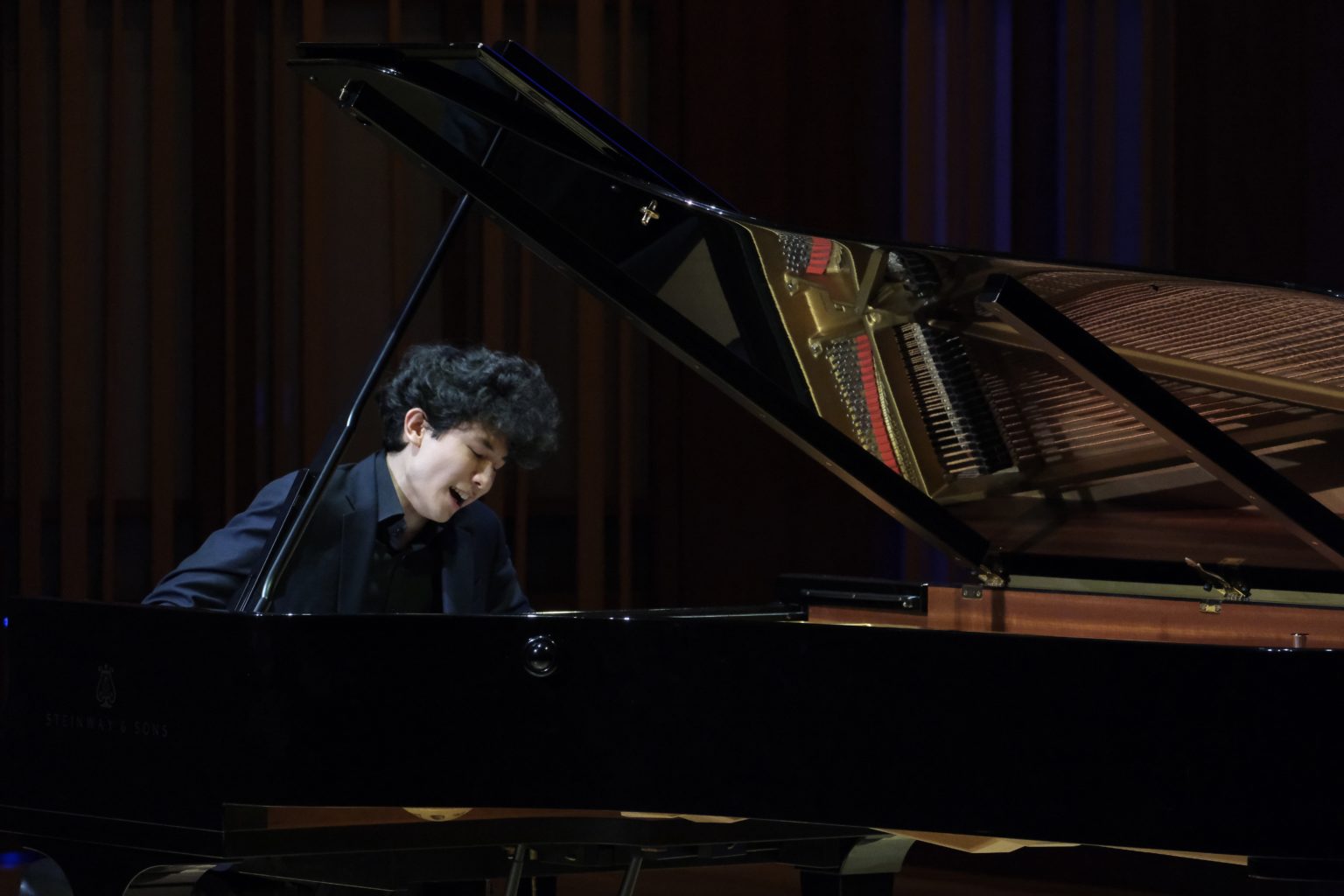Tony Siqi Yun’s Compelling Schumann ‘Symphonic Études’ at The Conrad
The 22-year-old Canadian virtuoso pianist Tony Siqi Yun delighted those who admire the piano works of Robert Schumann by giving a robust and captivating account of the composer’s Symphonic Études, Op. 13, in his debut recital Sunday for the La Jolla Music Society. After he won First Prize at the China International Music Competition in 2019, Music Director Yannick Nézet-Seguin invited him to make his debut with the Philadelphia Orchestra, where he played Schumann’s Piano Concerto this past season. His accomplished account of Op. 13 at The Conrad certainly established his command of Schumann’s effulgent Romantic vision.
Always cited as one of Schumann’s most demanding piano compositions, the Symphonic Études did not spring forth in a vacuum. Much of the work’s 30-minute span is devoted to an extensive set of variations on a theme written by a musical amateur, Baron von Fricken, the father of Ernestine von Fricken, an attractive young piano student of master piano teacher Friedrich Wieck, with whom Schumann also studied. When Schumann started composing this variation set, he was quite smitten with Ernestine, but the Baron disapproved of this relationship and sent Ernestine off to another teacher. Schumann, of course, ended up marrying Wieck’s own musically gifted daughter Clara.After the breakup with Ernestine, Schumann stuffed his unfinished Variation Cycle on the Baron’s theme in a drawer and forgot about it until year later when he heard Frédêric Chopin perform in Leipzig. After experiencing Chopin’s etudes and nocturnes, he retrieved his Variation Cycle and refurbished it inspired by Chopin’s panache.
Once Tony Siqi Yun dispatched Schumann’s concise setting of the Baron’s austere theme in the opening movement, the pianist hurled himself into the bravado of Schumann’s First Variation, encompassing its expansive air with an engaging, warm sonority that I had missed in his cerebral account of Beethoven’s Appassionata Sonata, Op. 57, on the program’s first half. His astonishing technique allowed him to blaze through Schumann’s several vivace and vivacissimo variations with cool precision, yet he imbued the more reflective variations such as Étude VIII—marked Andante—with the luminous definition of a Chopin nocturne. For the substantial Finale—marked Allegro brillante—Schumann pulled out all the stops, which allowed Tony Siqi Yun to draw compelling, bracing orchestral textures from the piano with apt dramatic flair.
I enjoyed the pianist’s thoughtful, probing account of Johannes Brahms’ Theme and Variations in D Minor, Op. 18b, which opened his recital, as well as his bold dynamic contrasts that successfully recreated Richard Wagner’s “Isoldes Libestod” from the opera Tristan und Isolde in Franz Liszt’s transcription. Before launching into the Schumann, Tony Siqi Yun offered Ferruccio Busoni’s endearing 1907 bagatelle Berceuse from Elegies, BV 249, coaxing translucent Impressionist harmonies to support the composer’s asymmetrical melodies.
This recital was presented by the La Jolla Music Society on Sunday, January 21, 2024, at La Jolla’s Conrad Prebys Performing Arts Center.

Ken Herman, a classically trained pianist and organist, has covered music for the San Diego Union, the Los Angeles Times’ San Diego Edition, and for sandiego.com. He has won numerous awards, including first place for Live Performance and Opera Reviews in the 2017, the 2018, and the 2019 Excellence in Journalism Awards competition held by the San Diego Press Club. A Chicago native, he came to San Diego to pursue a graduate degree and stayed.Read more…

